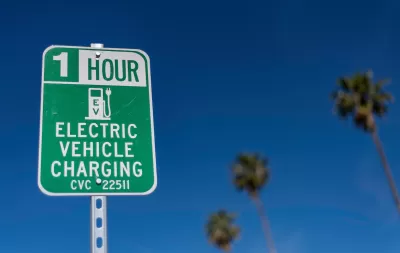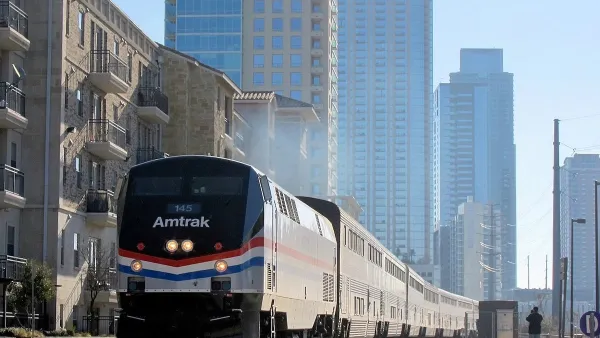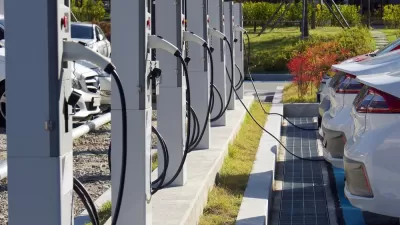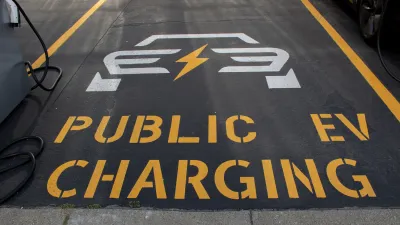Funded through the Bipartisan Infrastructure Law, the Electric Vehicle Charger Reliability and Accessibility grant program will help advance the Biden Administration’s goal to have 500,000 public EV chargers in operation by 2030.

According to an article from Electrek, the U.S. Joint Office of Energy and Transportation has launched a $150 million grant program to repair and upgrade 4,500 existing, publicly accessible electric vehicle charging ports across the country. The effort, called the Electric Vehicle Charger Reliability and Accessibility program, is funded through the Bipartisan Infrastructure Law and is part of the Biden Administration’s goal to have 500,000 public EV chargers in the ground and operating by 2030 and, article author Michelle Lewis reports, “at a time when, according to the US Department of Energy’s Alternative Fuels Data Center, approximately 5% of public charging ports are temporarily unavailable.”
The Joint Office broke ground on the first project funded under the EVC-RAA grant program in late August; the inoperable charging station in Washington, D.C. will be upgraded to charge four vehicles simultaneously at speeds of 150 kW, up from its previous capacity of 50 kW. “Located near a convenience store, a riverfront park, trails, and a Capital Bikeshare station, the station is well-positioned to serve both residents and visitors,” Lewis writes.
In addition to ensuring Americans have access to convenient, safe, and dependable EV charging infrastructure, the federal government’s push to build out EV charging infrastructure is a key component of its strategy to meet national climate goals under the Paris Agreement. Earlier this year, the White House announced $623 million in grants to build new public EV charging infrastructure.
FULL STORY: The US govt is fixing and upgrading 4,500 EV charging ports

Planetizen Federal Action Tracker
A weekly monitor of how Trump’s orders and actions are impacting planners and planning in America.

Map: Where Senate Republicans Want to Sell Your Public Lands
For public land advocates, the Senate Republicans’ proposal to sell millions of acres of public land in the West is “the biggest fight of their careers.”

Restaurant Patios Were a Pandemic Win — Why Were They so Hard to Keep?
Social distancing requirements and changes in travel patterns prompted cities to pilot new uses for street and sidewalk space. Then it got complicated.

Platform Pilsner: Vancouver Transit Agency Releases... a Beer?
TransLink will receive a portion of every sale of the four-pack.

Toronto Weighs Cheaper Transit, Parking Hikes for Major Events
Special event rates would take effect during large festivals, sports games and concerts to ‘discourage driving, manage congestion and free up space for transit.”

Berlin to Consider Car-Free Zone Larger Than Manhattan
The area bound by the 22-mile Ringbahn would still allow 12 uses of a private automobile per year per person, and several other exemptions.
Urban Design for Planners 1: Software Tools
This six-course series explores essential urban design concepts using open source software and equips planners with the tools they need to participate fully in the urban design process.
Planning for Universal Design
Learn the tools for implementing Universal Design in planning regulations.
Heyer Gruel & Associates PA
JM Goldson LLC
Custer County Colorado
City of Camden Redevelopment Agency
City of Astoria
Transportation Research & Education Center (TREC) at Portland State University
Camden Redevelopment Agency
City of Claremont
Municipality of Princeton (NJ)





























